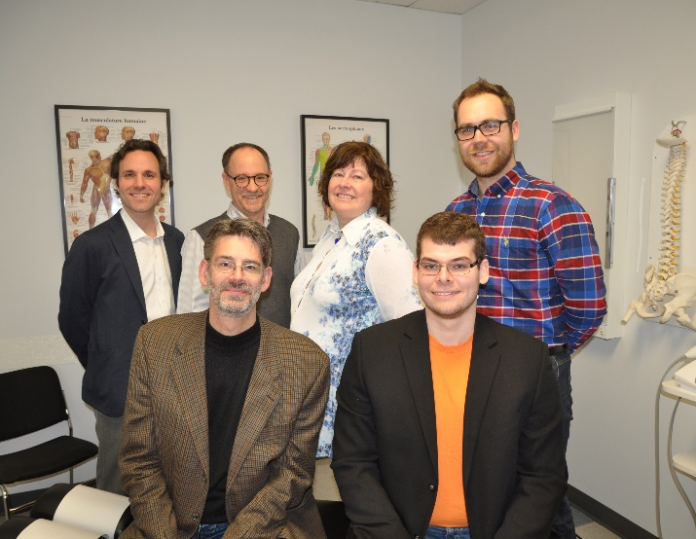
Mathieu Piché, a professor at Université du Québec à Trois-Rivières sheds light onto acute and chronic pain…
Pain is a universal experience that is critical for survival, serving as an alarm system when noxious but undetectable events occur in the body. For instance, myocardial infarction would go unnoticed before its fatal blow without chest and arm pain, which warns us to evoke adaptive behaviours such as seeking medical care, when time allows. Neural processes underlying pain perception also have a defensive function by producing a withdrawal response to protect the body against tissue damage. This response is automatic and is evoked by a spinal cord reflex pathway, even before we notice pain through cerebral processes. Because of this, we all learnt that fire or heat sources can burn and produce injuries. The importance of the protective function of pain can be exemplified by diseases involving congenital pain insensitivity, for which the affected individual cannot feel pain and suffer from multiple and severe injuries, leading to bone fractures, infections and eventually, death.
In spite of these adaptive and protective functions, pain can also have devastating impacts. Indeed, in some individuals, acute pain may lead to modifications in the central nervous system, including the spinal cord and the brain. These changes trigger the transition of acute pain into persistent pain, which lasts over the natural history of a condition or disease and becomes chronic. Chronic pain is a major issue for most societies. In Canada, approximately 20% of the adult population is affected by some form of chronic pain, which leads to important personal and economic consequences. For example, in affected individuals, chronic pain can lead to a lower quality of life, psychological disorders, such as anxiety and depression, difficulties with interpersonal relationships, as well as decreased work productivity and satisfaction. From a societal point of view, these consequences result in high costs related to the use of health cares, work compensations and reduced incomes. Addressing these issues remains a challenging and demanding task.
Research perspectives
Considering that more than 50% of individuals with chronic pain cannot obtain pain relief and live with more or less constant pain, solutions are needed to address this serious issue. Basic and clinical pain research can offer several avenues to improve the situation. On one hand, basic research provides a window on the mechanisms of acute and chronic pain, which must be understood thoroughly in order to develop and improve treatments. It also allows for testing new drugs and acting on these mechanisms for pain management. On the other hand, clinical research is essential to validate pain treatments and ensure cost-effectiveness (for example, see RQRCC below).
The team at Université du Québec à Trois-Rivières is currently working on ways to improve brain function that allows pain inhibition in patients with chronic pain. By stimulating the brain with non-invasive magnetic fields and electrical currents, they hope to establish effective protocols to manage chronic pain as part of an interdisciplinary intervention (see CogNAC research group). One example is the stimulation of the dorsolateral prefrontal cortex, which inspires working memory, to enhance the capacity of the brain to process information and perform cognitive tasks, without being affected by pain perception. In patients with chronic pain, this ability is altered. Thus, this kind of brain stimulation protocol could improve working memory and therefore, pain inhibition mechanisms and pain management.
Pain neurophysiology laboratory
Dr. Mathieu Piché is professor of neurophysiology in the departement of chiropractic at Université du Québec à Trois-Rivières (UQTR) where he holds the UQTR research chair in pain neurophysiology and the chiropractic research chair from Fondation Chiropratique du Québec. His research is based on a translational approach using various techniques such as electrophysiology and brain imaging, ranging from basic studies on pain mechanisms in animals to clinical studies aiming at developing or improving pain treatments.
Quebec chiropractic practice-based research network (RQRCC)
The RQRCC is a provincial chiropractic practice-based research network made up of over 150 chiropractors, conducting clinical research to improve the effectiveness and the quality of chiropractic cares, including interventions aiming at relieving pain. One of the current research project aims at determining the factors predicting the evolution of pain, function and quality of life of patients with acute and chronic spinal pain following a chiropractic intervention.
Mathieu Piché
Professor
Université du Québec à Trois-Rivières
01+819-609-4897
Mathieu.piche@uqtr.ca
Please note: this is a commercial profile










